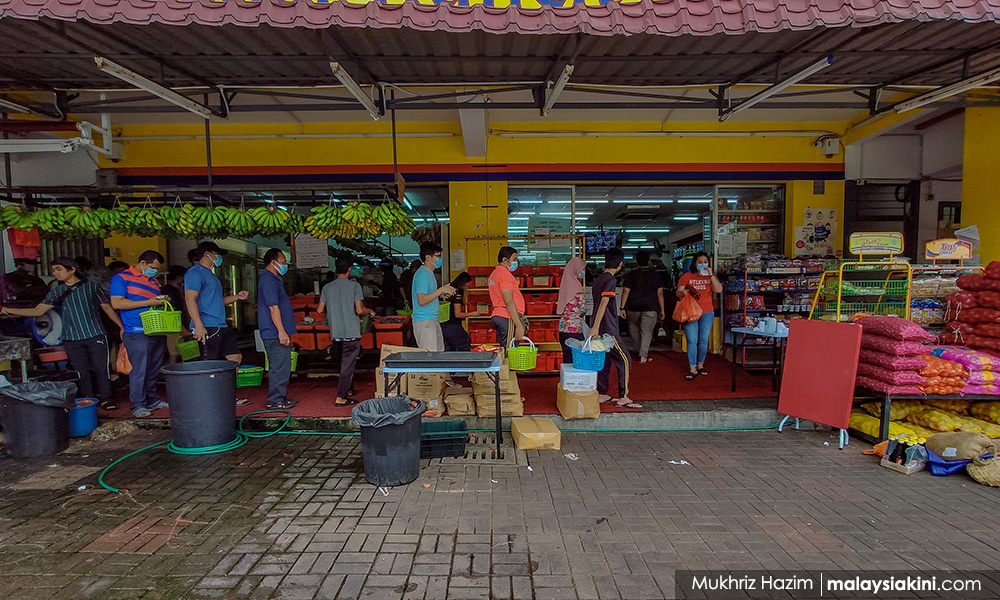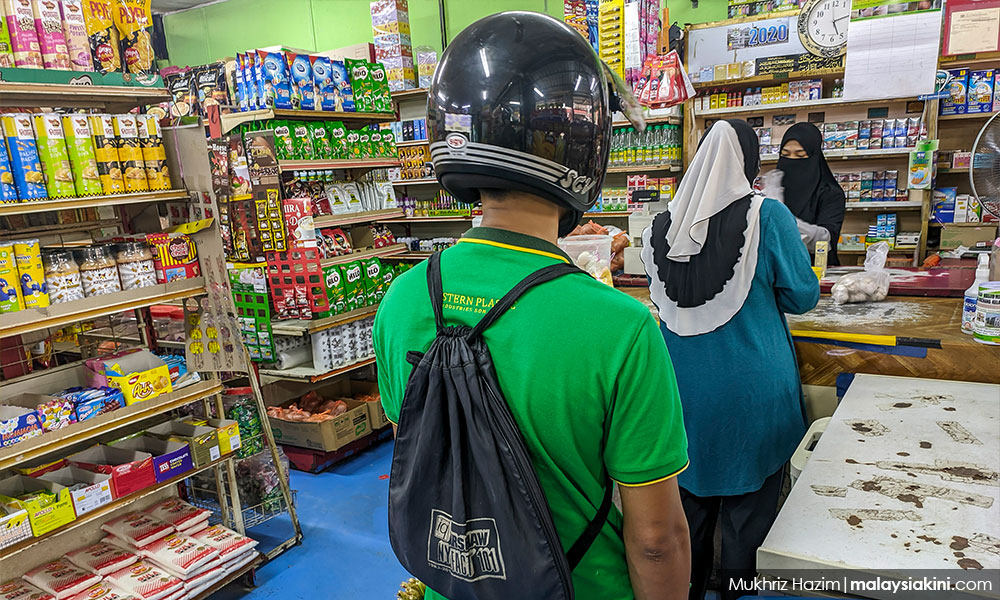Pakatan Harapan has disagreed with the reintroduction of the Goods and Services Tax (GST) as it will lead to a sharp increase in consumer goods prices.
The opposition coalition reminded the government that the majority of Malaysians had rejected GST, as shown in the 2018 general election.
"The Harapan presidential council does not agree with the proposal by Prime Minister Ismail Sabri Yaakob to reintroduce GST.
“Under the circumstance of escalating inflation, the people are particularly affected by the rising cost as well as decreasing household income due to the (economic fallout of) the Covid-19 pandemic.
"The reintroduction of GST will lead to a sharp leap in prices of goods. This will cause tremendous pressure on the people if they also face a stagnant wage coupled with the supply chain issues," it said in a statement today.
Harapan added that it was inappropriate for the government to think of collecting more taxes from the people when it had not rectified governance issues following the 1MDB scandal.
"It is unreasonable for the government to intend to collect more taxes from the people without first proving that reforms and improvement in governance have been successfully implemented.
"There is no point in collecting more taxes if the taxpayers' money is eventually squandered due to corruption, leakage and cronyism," it said.

Harapan drew the conclusion based on the country's ranking in the Transparency International Corruption Perception Index, which dropped five spots to 62 out of 108 countries, as well as The Economist's Crony-Capitalism Index, which placed Malaysia in the second rank after Russia.
"The prime minister should be reminded that the majority of Malaysians had rejected GST in the last general election. Therefore, Harapan disagrees with the GST reimplementation proposal as long as these issues continue to plague the people," the coalition said.
The statement was jointly endorsed by PKR president Anwar Ibrahim, DAP secretary-general Anthony Loke, Amanah president Mohamad Sabu and Upko president Madius Tangau.
In a recent interview with Nikkei Asia, Ismail Sabri said the government was keen on reintroducing GST.
He said the government was aware of the GST's unpopularity but it had limited options, also noting that it had lost RM20 billion in annual revenue after the tax was abolished.
The prime minister said the government would target a GST rate that would not burden the people but is not so low that it "defeats the purpose of expanding tax revenue".
GST, which was implemented in 2015 under BN, was abolished after Harapan won the 2018 general election.
GST punishes the poor
Meanwhile, DAP secretary-general Liew Chin Tong said he was stunned that Ismail Sabri and former prime minister Najib Abdul Razak pushed to bring back GST amid a global rise in inflation.
"GST and similar consumption taxes, in general, have been proven to trigger a sharp drop in consumption after the introduction, at least temporarily. Pushing for the GST amidst high global inflation is madness, to say the least.
"The regressive tax proposal has been pushed by neo-liberal economists and Treasury officials as early as the 1990s.
"When oil and commodity prices slumped drastically from October 2014 for an extended period into 2016, Najib followed some ill-advised neo-liberal ideas to cut budgetary outlays in 2015 and 2016 at a time when the economy was badly hit, and introduced the GST on April 1, 2015," he said.
Liew pointed out that if the GST was a silver bullet for an economic boom, the economy would have surged between 2015 and 2018 when the tax was in place.
"If GST was the solution to raise government revenue, it would have shown the result between 2015 and 2018, yet there was no such evidence," he said.

Liew said the promoters of GST have argued that Malaysia's tax base is too small, and there are too few Malaysians - only around 16.5 percent - subject to individual income tax, and therefore, by implementing GST, the tax base will expand, as everyone will need to pay GST whenever people purchase any goods or services.
"My advice for Ismail Sabri is that he should do a background check on those who fed him the idea of reintroducing GST, especially when it is a year or so before a general election has to be called.
"Lest we forget, the GST is the tax that punishes the poor, kills consumption at all levels, doesn't increase government revenue, and doesn't benefit the overall economy," he said in a Facebook posting today.
Liew also said the government should focus on growing the middle-income group in the long run if its intention was to increase the tax base.
"There is no magic formula or a quick fix. The government should restructure the economic model so that in a decade's time, at least 60 percent of Malaysian households would earn enough to pay direct income tax," he said.
Liew added that the government has to create jobs that pay better and develop new sectors that create those jobs in order to create a middle-class society with decent jobs and decent pay.
"In the long run, there are so many more alternatives to GST and consumption taxes in general. For instance, create a new, higher marginal tax rate for the top one to two percent of earners, so that they are on a significantly higher marginal rate compared to the middle class," he said. - Mkini

No comments:
Post a Comment
Note: Only a member of this blog may post a comment.